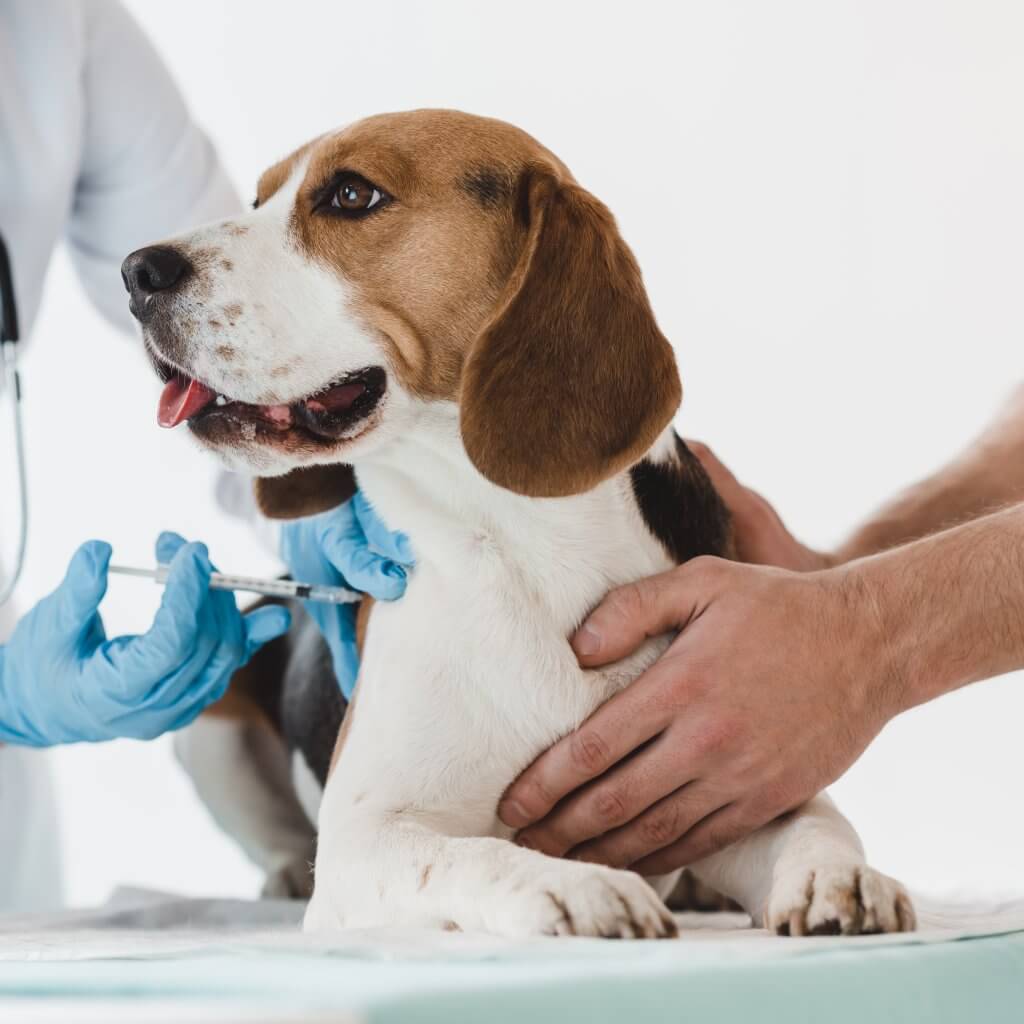Post Vaccine Reactions
Published August 12, 2021


Vaccine Reactions
Content reviewed by an Essentials PetCare veterinarian.
Vaccines are used to prevent infection and clinical signs of disease for a number of infectious agents that can cause symptoms up to severe disease and death in both people and animals. Within veterinary medicine vaccines are an important aspect of veterinary care and have been used for decades to improve and lengthen quality of life in animals. Occasionally, vaccines can cause an adverse effect or “reaction.” Knowing what is to be expected after a vaccination is important as well as knowing when you do or do not need to seek veterinary care.
Vaccines always induce a reaction with the body’s immune system. This is how they work to provide protection against certain infectious agents. Just like in people, this immune reaction is normal and expected but can result in several clinical signs that are generally self-limiting and resolve on their own in 24 to 48 hours, often without the need for veterinary care. These signs typically consist of the following:
- Lethargy
- Anorexia
- Mild fever
- Lymph node enlargement
- Nonspecific soreness or pain
- Injection site swelling, itchiness, or pain
- Sneezing after a nasal vaccine
In some cases, vaccines may result in more serious adverse events. In these cases, medical intervention may be needed, and your veterinarian should be consulted if you are seeing any of these more serious signs. Adverse reactions typically will develop within a few minutes to hours of the vaccine administration, up to 24 hours after, and include the following:
- Vomiting
- Diarrhea
- Facial swelling
- Hives
- Difficulty breathing
- Collapse
If you see any of the serious adverse reactions above within 24 hours of vaccination, please contact your Essentials PetCare clinic or closest full-service animal hospital immediately for assistance. If your pet has a reaction after hours, please visit your local animal emergency clinic, then request that they email any treatment records to us for follow-up.
Vaccine Pre-Treatment
In animals that have any history of adverse reactions, pre-treatment with antihistamines, such as Benadryl®, or generic diphenhydramine, can be administered at least 30 minutes before vaccination to help prevent them from reoccurring. Monitoring of the patient at the veterinary clinic for at least 30 minutes after vaccine administration may also be recommended in case further treatment is needed. When these reactions occur after vaccine administration, injections of antihistamines are typically used and are very effective.
In more serious cases, steroids may also be used for their effect of reversing allergic reactions, or intravenous fluid administration, oxygen support, and stronger drugs, such as epinephrine, may rarely be needed. It is important to note that signs will often resolve slowly, sometimes taking up to 6 to 12 hours for complete resolution. Your veterinarian may recommend that you continue oral antihistamines at home for a few days afterward.
Vaccines can occasionally cause lumps or nodules at the injection site that remain several days after the vaccine administration. While these can be concerning in both cats and dogs, they are more of a concern in cats. If your pet develops a lump or nodule after vaccination at Essentials PetCare, please contact your Essentials PetCare clinic. The veterinarian will develop a plan to monitor the lump and will advise if further treatment is needed.
As in people, more serious and life-threatening reactions to vaccinations are possible, but are extremely rare. The benefit of vaccination far outweighs the risk of serious and life-threatening side effects, but it is always important to discuss any concerns with your veterinarian. These effects can include the following:
- Permanent hair loss at the injection site
- Encephalitis
- Polyneuritis
- Arthritis
- Seizures
- Systemic anaphylaxis (shock)
- Immune-mediated anemia/thrombocytopenia (destruction of red blood cells and platelets)
- Vasculitis at the injection site or distant sites
- Malignant cancerous change of cells
If your cat or dog has any history of reactions to vaccines, please let your Essentials PetCare veterinary team know before your wellness visit. We can discuss these reactions and any concerns you may have and develop the best medical plan for your pet. For more information on vaccine reactions, please consult the following websites:



